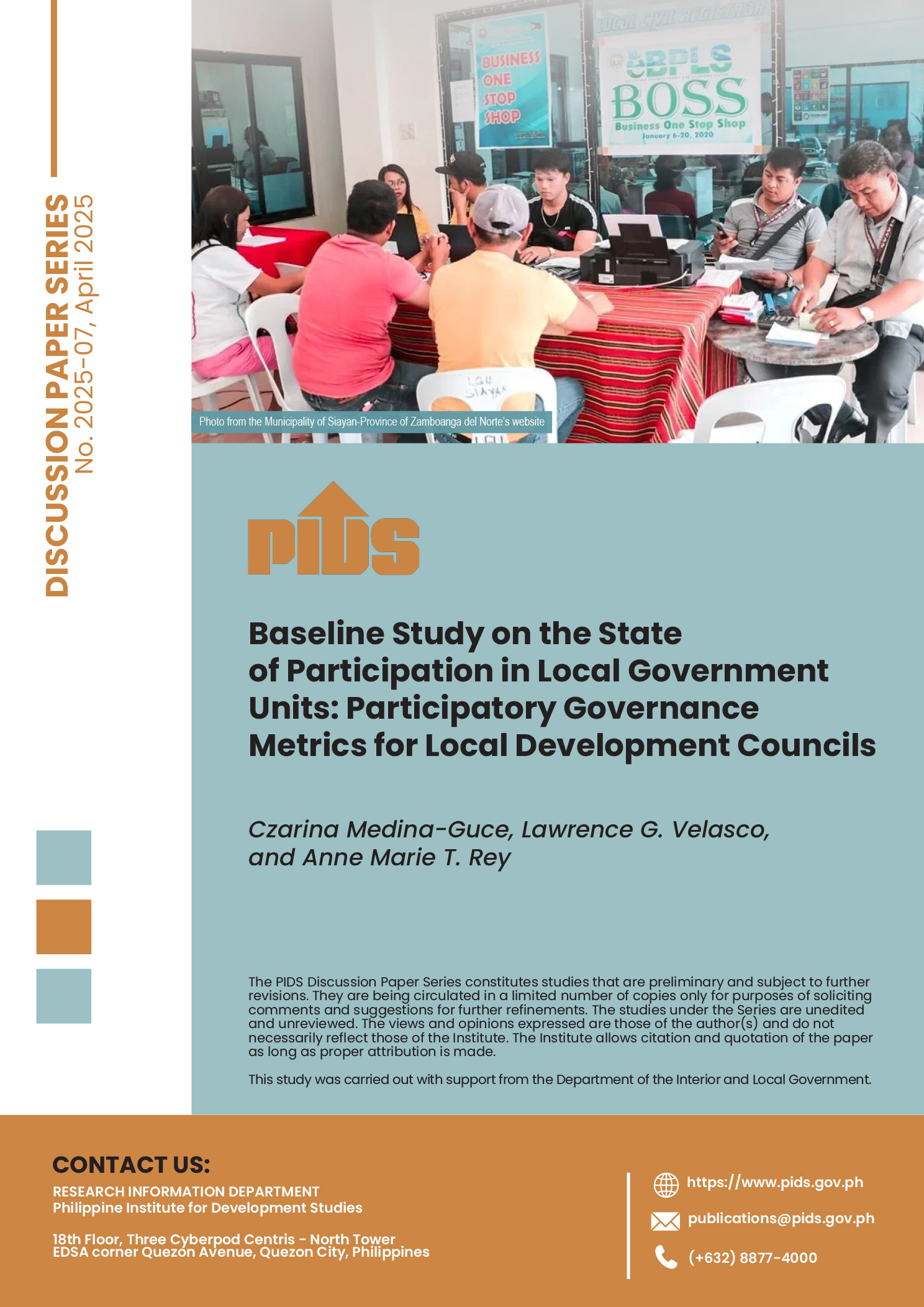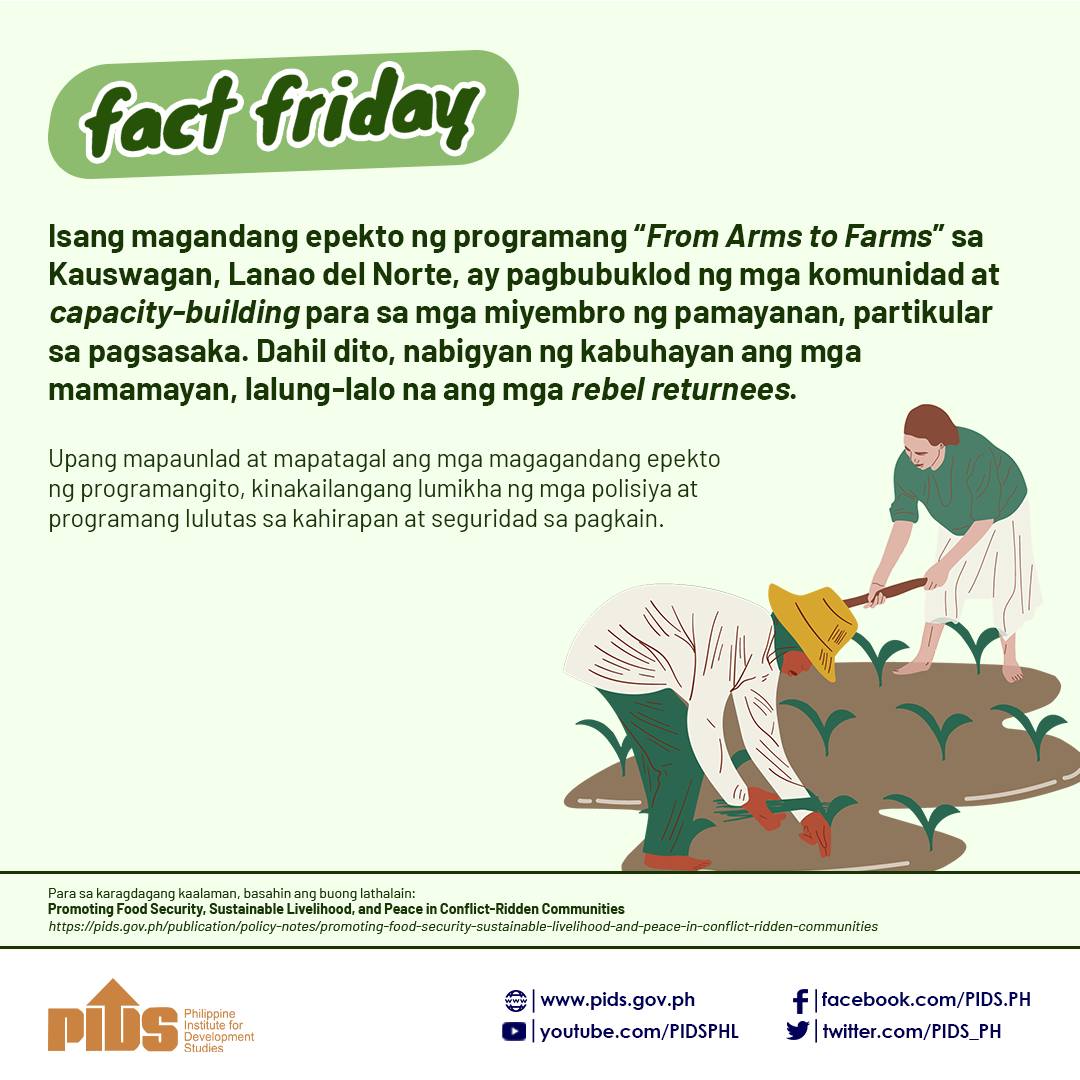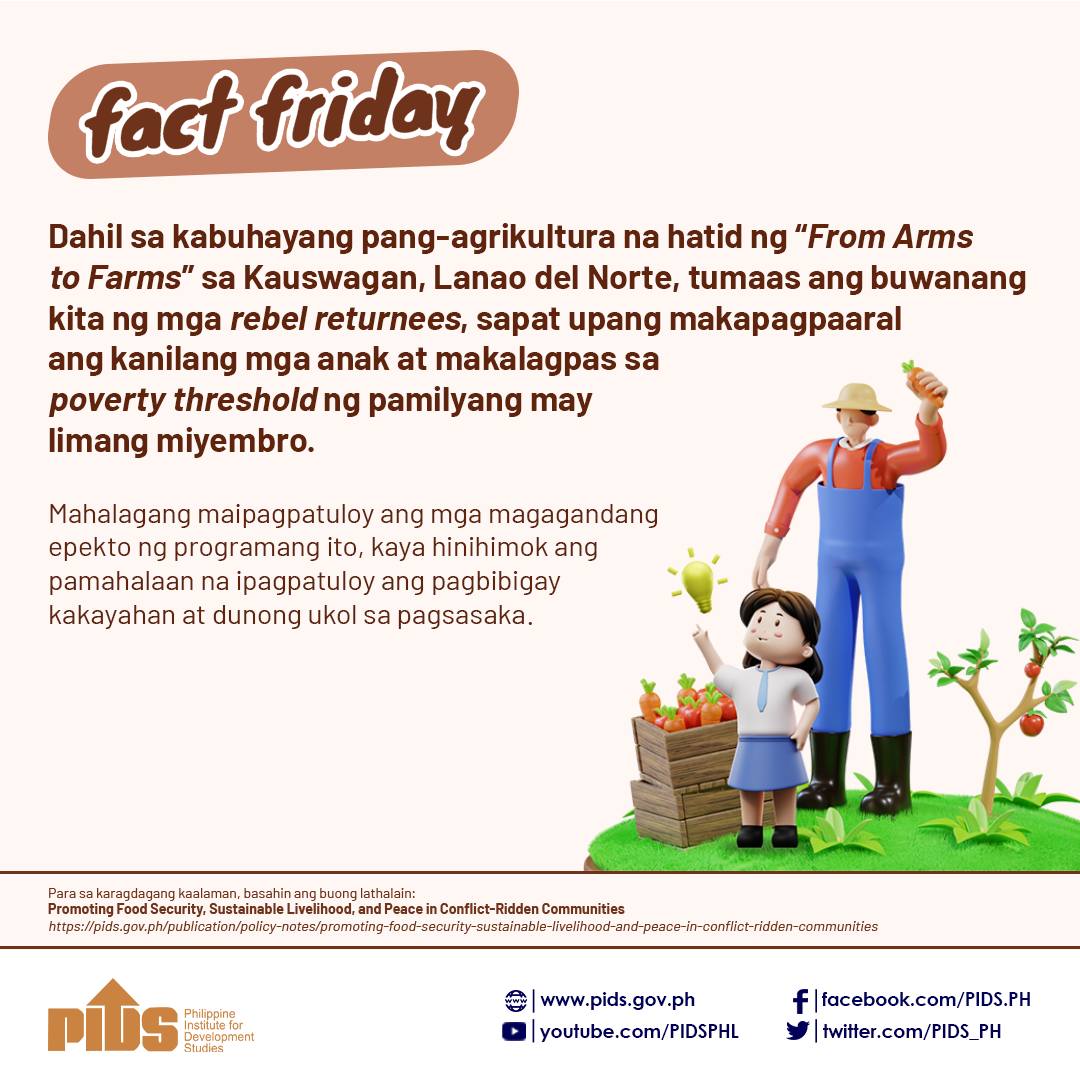A GOVERNMENT think tank in a statement yesterday cited a study in June on access to post-harvest facilities (PHFs) being a vital complement to rice farmers’ income.
The study titled, "Rapid Appraisal of the Postharvest Facilities Projects in the Philippines,” which forms part of the discussion paper series by the Philippine Institute for Development Studies (PIDS), evaluated the government’s post-harvest loss reduction programs and noted too the considerable public investments in this area.
Commissioned by the PIDS and the National Economic and Development Authority (NEDA) to consultancy firm NEXUS Agribusiness Solutions, the study noted "overall, the PHFs assessed were found to have a positive impact in addressing post-harvest losses and improving the marketing system for rice and high-value crops,” the NEDA-attached institute said in its statement.
"Farmers are assured of competitive prices for their wet paddies even during periods of oversupply since RPCs [rice processing centers] offer higher buying prices compared to private traders and millers,” said the study’s authors, PIDS consultants Nerlita M. Manalili, Kevin F. Yaptenco and Alessandro A. Manilay.
Among the projects cited in the study are RPCs in the provinces of Pangasinan, Davao del Sur, Bohol and Iloilo, equipped with such equipment as those for modern milling and drying.
These four sites were established through a P649-million grant by the Korea International Development Agency (KOICA) covering equipment, training and expertise. The Department of Agriculture provided P136 million as counterpart investment in terms of freight and taxes, site development and other expenses. An additional P2 million per site as additional operating capital was provided by farmer organizations who are the beneficiaries of these projects.
"The use of flatbed dryers reduces grain deterioration or yellowing of rice grain during the rainy season as well as prevents physical losses from sun drying. The modern milling facilities at the RPCs also improve milling recovery, resulting in increased quantity of milled rice,” the authors said in their report.
Food terminals in these four provinces where RPCs are located were also found to be effective in helping provide agro suppliers with access to markets. "Barangay Food Terminals (BFTs) and Municipal Food Terminals (MFTs) were designed to function as food depots and distribution systems. Since each food terminal is located within a farming or fishing area, the Impact Evaluation Team concluded that the facilities can provide direct links between suppliers and consumers,” the study said. "Thus, layers of middlemen are reduced leading to improved income for producers.”
"As a result, availability of commodities and basic goods has improved,” the PIDS statement said. "Likewise, the increased economic activities brought about by these food terminals have created more employment and business opportunities.”
This, in turn, has redounded to increased revenues for their local governments, which, among other functions in their partnership with this enterprise, took part in the administration of the food terminals.
After two years in operation, the KOICA-RPCs have "recovered” some P321 million or 37.14% of the total project cost of P865 million, said the study, which also noted, "Determining returns on investment for projects approaching this amount usually has to consider a useful life of more than 15 years.”
"For purposes of this study, the appropriate method of analysis is the Capital Recovery Approach. This method treats the benefits obtained from the projects as repayment to the capital investment.”
The study also called for additional support. "Increasing the investment in RPCs will allow them to buy more rice paddies from farmers. To achieve this, RPCs should also invest in more cargo trucks for timely pickup of harvested paddy and delivery of milled rice,” wrote the authors, who, the statement said, also recommended "an investment of around P80 million for each site.”
The study recommended "appropriate financing and crop insurance services” from government for farmers to reduce dependence on private traders, the statement said.//












